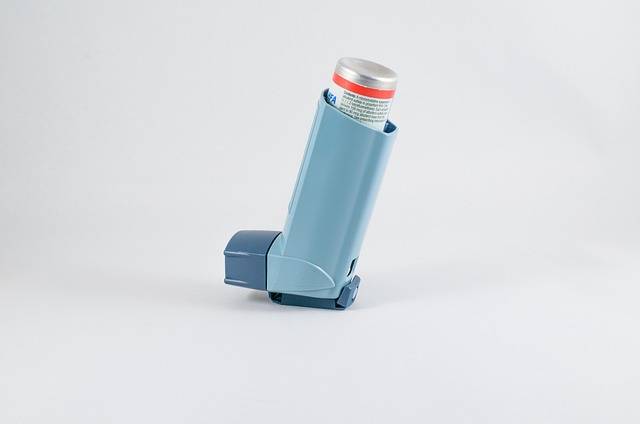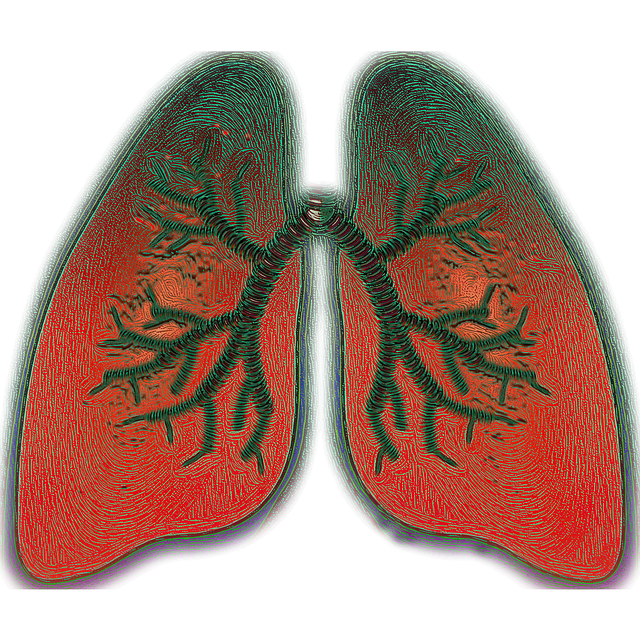Chronic Fatigue Syndrome (CFS) is a complex condition linked to mold exposure. Research shows that certain molds can trigger inflammatory responses, contributing to fatigue and diverse CFS symptoms. Individuals with CFS often report sensitivity to indoor air quality, influenced by mold growth. The health effects of mold include respiratory issues and cognitive impairment, emphasizing the importance of creating mold-free environments. Healthcare professionals are recognizing the connection between mold and CFS, focusing on comprehensive diagnosis and early detection. Addressing mold exposure is crucial for managing CFS symptoms and improving overall health, with strategies like thorough inspections, professional remediation, and preventive measures. Further research is needed to understand the specific health effects of various molds and their toxins, leading to better awareness and outcomes for individuals with CFS.
“Uncover the mysterious link between mold exposure and Chronic Fatigue Syndrome (CFS). This comprehensive guide explores the intricate relationship between these two seemingly unrelated entities. With an estimated global impact, CFS leaves many searching for answers.
In this article, we delve into the ‘The Role of Mold in Indoor Environments’ and uncover its potential as a trigger for CFS symptoms. Scientific research is examined to highlight the ‘Health Effects of Mold’, offering insights into ‘Symptoms and Diagnosis’. Learn practical strategies for ‘Mitigating Mold Exposure’ and stay informed about future research directions.”
- Understanding Chronic Fatigue Syndrome (CFS)
- The Role of Mold in Indoor Environments
- Scientific Evidence Linking Mold and CFS
- Symptoms and Diagnosis of Mold-Related CFS
- Mitigating Mold Exposure for CFS Patients
- Future Research and Awareness for Mold and CFS
Understanding Chronic Fatigue Syndrome (CFS)

Chronic Fatigue Syndrome (CFS), also known as myalgic encephalomyelitis/chronic fatigue syndrome (ME/CFS), is a complex and multifaceted condition characterized by extreme fatigue that doesn’t improve with rest. Individuals with CFS experience a wide range of symptoms, including cognitive difficulties, unrefreshing sleep, exercise intolerance, and post-exertional malaise. The exact causes of CFS are still not fully understood, but it’s believed to involve a combination of genetic, environmental, and immunological factors. One emerging area of interest in CFS research is the potential link between mold exposure and the development or exacerbation of symptoms.
Previous studies have explored the health effects of mold, suggesting that certain types of mold spores can trigger inflammatory responses in the body. This inflammation may contribute to the chronic fatigue and other symptoms associated with CFS. Additionally, individuals with CFS often report sensitivity to various environmental factors, including indoor air quality, which could be influenced by mold growth. Understanding these potential connections is crucial for developing effective strategies to manage and treat CFS, as it may involve addressing underlying environmental triggers alongside traditional therapeutic approaches.
The Role of Mold in Indoor Environments

Mold plays a significant role in indoor environments, often going unnoticed until it becomes a problem. It thrives in dark, damp spaces, making homes, offices, and other enclosed areas potential breeding grounds. The health effects of mold exposure are diverse and can impact individuals in various ways, particularly those already suffering from chronic conditions like Chronic Fatigue Syndrome (CFS).
Beyond structural damage, mold can release harmful spores that, when inhaled, may trigger or exacerbate symptoms associated with CFS, such as fatigue, cognitive issues, and respiratory problems. The impact of these health effects of mold can be subtle but persistent, leading to a cycle of worsening symptoms and reduced quality of life. Understanding this connection underscores the importance of maintaining healthy indoor environments through proper ventilation, moisture control, and regular mold remediation.
Scientific Evidence Linking Mold and CFS

Scientific studies have increasingly pointed to a connection between mold exposure and Chronic Fatigue Syndrome (CFS). Research suggests that certain types of molds produce mycotoxins, which can have adverse health effects, including fatigue, cognitive issues, and respiratory problems. These toxins can infiltrate buildings, especially in water-damaged areas, and contribute to the development or exacerbation of CFS symptoms.
Multiple studies have shown a higher prevalence of mold exposure among individuals with CFS. One study found that patients diagnosed with CFS were more likely to report living or working in damp environments with visible mold. The mycotoxins produced by these molds can trigger an immune response, leading to chronic inflammation and subsequent fatigue. Understanding this link is crucial for developing effective strategies to manage CFS, particularly focusing on environmental interventions to reduce mold exposure.
Symptoms and Diagnosis of Mold-Related CFS

Many individuals suffering from Chronic Fatigue Syndrome (CFS) often report symptoms that may be linked to mold exposure. These can include persistent fatigue, headaches, cognitive issues like brain fog, respiratory problems, and even gastrointestinal distress. The intricate relationship between mold and CFS is a growing area of interest for healthcare professionals, as the health effects of mold are becoming increasingly recognized.
Diagnosing CFS associated with mold exposure requires a comprehensive approach. Medical professionals typically assess a patient’s history, conduct thorough physical examinations, and order specific tests to identify potential environmental triggers. This process may involve analyzing air quality samples for mold spores, taking blood tests to rule out other conditions, or even skin tests to detect allergies. Early detection is crucial, as timely intervention can potentially mitigate the severity of symptoms and improve overall well-being.
Mitigating Mold Exposure for CFS Patients

For Chronic Fatigue Syndrome (CFS) patients, mitigating mold exposure is a crucial step in managing symptoms and improving overall health. Given the potential health effects of mold, including respiratory issues and cognitive impairment, creating a mold-free environment is essential. Starting with a thorough inspection to identify hidden mold sources is the first step. Professional remediation services should be engaged for extensive contamination to ensure safe removal without exacerbating CFS symptoms.
Implementing preventive measures is equally vital. Regular ventilation, maintaining indoor humidity levels between 30% and 50%, and using air purifiers with HEPA filters can significantly reduce mold spores in the air. Additionally, addressing water leaks promptly and ensuring proper drainage around buildings can prevent mold growth. These strategies, combined with a focus on overall wellness, can help CFS patients create healthier living spaces and potentially lessen symptoms related to mold exposure.
Future Research and Awareness for Mold and CFS

As research continues to evolve, understanding the intricate relationship between mold exposure and Chronic Fatigue Syndrome (CFS) is a growing priority. Future studies should focus on expanding our knowledge about the specific health effects of mold, particularly its impact on the brain and immune system, as these are often at the core of CFS symptoms. Investigating how different types of mold and their toxins contribute to fatigue, cognitive issues, and other associated symptoms can provide valuable insights for treatment and prevention strategies.
Awareness campaigns play a crucial role in educating both the public and healthcare professionals about the potential risks of mold exposure. By highlighting the latest research findings on the health effects of mold, these efforts can help reduce the stigma often associated with CFS and encourage early detection and intervention. This, in turn, may lead to improved outcomes for individuals struggling with this complex and often misdiagnosed condition.
